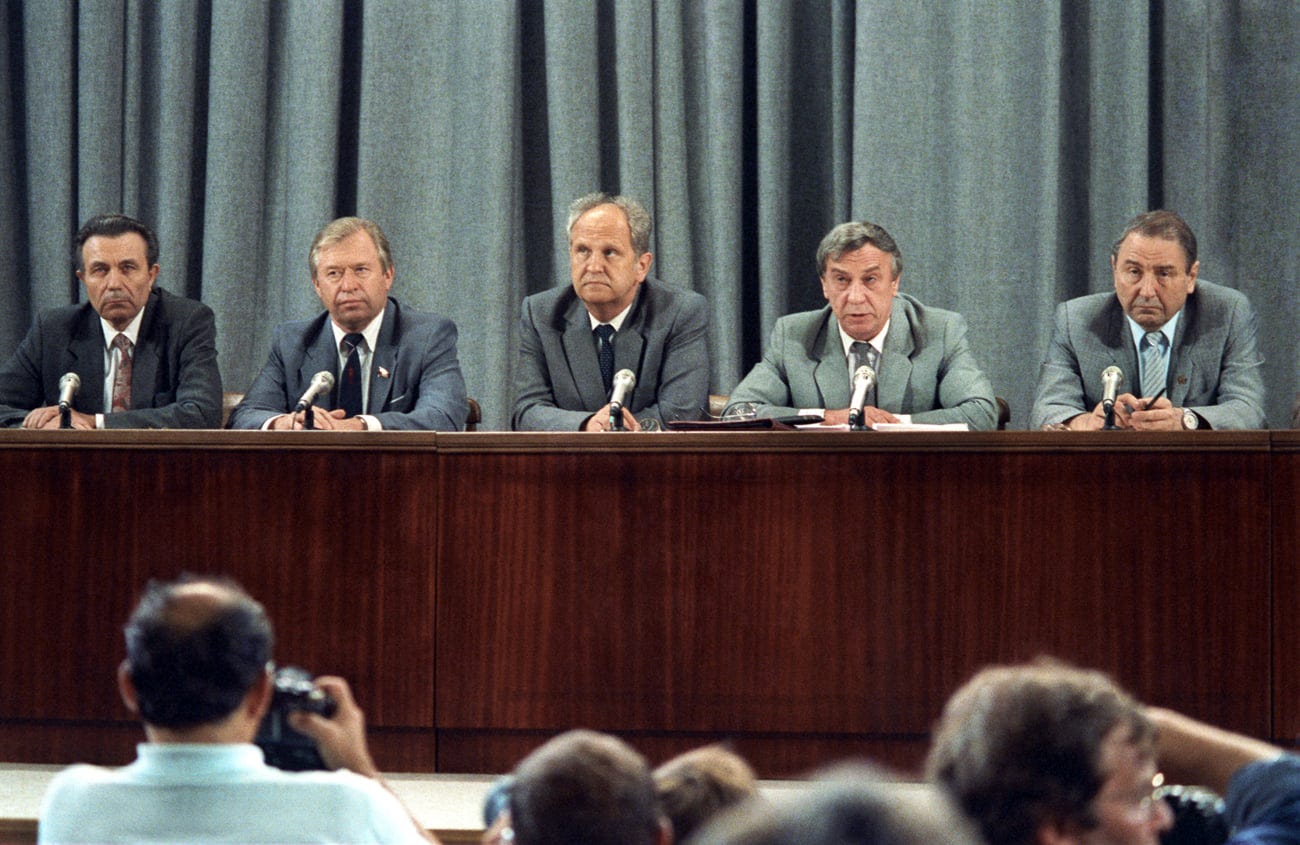Telegram #28 - Memories of the "August Putsch"
The attempt to "save" the Soviet Union that failed.
Anniversaries are important to us. They give us the opportunity to reflect, to celebrate, and to mourn. It is history's static truth, reaching toward us in the present as we venture into the ever-changing future.
31 years ago in the Soviet Union, Tchaikovsky's “Swan Lake” interrupted all television broadcasts while tanks rolled down the main avenues of Moscow. A coup was underway.
Since coming to power in 1985, Mikhail Gorbachev had sought to steer the Soviet Union towards reform, the famous two words, Glasnost (openness) and Perestroika (restructuring) ushered in unprecedented changes in a once authoritarian state.
People were beginning to ask difficult questions while free market practices became unquestioned. A new Union Treaty was due to be signed on the 20th of August to reconstitute the Union of Soviet Socialist Republics replacing “Socialist” with “Sovereign”.
This left a certain faction of hard-liners dissatisfied, worried that the Soviet Union as they knew it would come to an end. Led by vice-president Gennady Yanaev the “State Committee on the State Emergency” (GKChP) placed Gorbachev, on holiday in Crimea, under house arrest and claimed leadership of the country. The coup would fail in less than 72 hours.
This event has long fascinated me as it was the moment when the Soviet Union reached a point of no return. But what interests me more than the political developments themselves are the stories of those who witnessed the events of August 1991. I spoke to two professors of mine at the Moscow State Institute of International Relations, Professor Ivanov and Petrov (not their real names), and heard their recounting of the events.
On the morning of the first day of the coup, Professor Ivanov took the metro, just as he would any other work day, he knew that the political drama was unfolding but nobody knew exactly what was truly happening. He told me that on the metro, as the carriage was screeching into the darkness, there was “a look of despair, uncertainty, anxiety on the faces of the people. It was dead silent. Everyone was thinking about what their future would be.”
Professor Petrov, a supporter of Gorbachev's reforms, knew that something was awry when he had seen the newsstands displaying various newspapers with the same front page. By the time he was at the university, he saw tanks rolling down the avenue. “At that point, I knew that was it,” he said, “that was too much. I decided to turn in my party membership.”
When Professor Petrov told me this, I felt a shiver down my spine. I was greatly moved by his act of defiance which risked so much, not knowing what was to come. “What if the coup had succeeded?” I asked. “Well,” he said chuckling, “things would have ended up differently for me.”
“I was teaching at the People's Friendship University (RUDN) at that time,” said Professor Ivanov. “I remember our university's communist party secretary was climbing up and down collecting people's membership cards. I still hold onto mine though!”
During my discussions with Ivanov, it was clear that his position on the coup was that of regret. He had even hinted that there were indirect influences from external forces which sought to bring down the Soviet Union.
“Everyone who took part in the events of August 1991, the coup leaders, the civilians on the street, Gorbachev, Yeltsin, they all thought they could save their own vision of the Soviet Union,” Professor Ivanov lamented, “but what really happened was collective suicide.”






